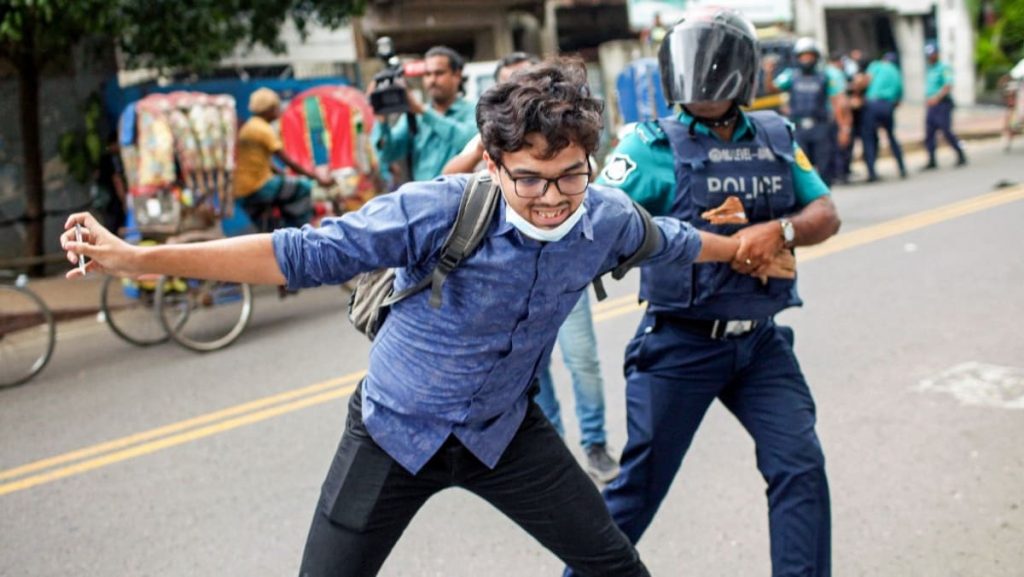Protests in Bangladesh, particularly in the capital Dhaka, have decreased in size compared to earlier in the month. Security forces have been deployed in various locations to prevent demonstrations, and one protest on the outskirts of Dhaka was broken up by police with arrests made.
A group known as Students Against Discrimination had put a pause on protests, but vowed to resume if their leaders were not released by a certain deadline. Their demands included a public apology from Prime Minister Hasina, the dismissal of certain ministers, and the reopening of schools and universities that had been closed during the unrest.
The unrest in Bangladesh has led to thousands of arrests across the country. Troops are still patrolling urban areas and a nationwide curfew is in place, although it has been gradually relaxed since the start of the previous week.
After an 11-day country-wide blackout of the mobile internet network, it was restored on Sunday, suggesting that the government believes the situation is under control. Despite the easing of restrictions, protests have continued in smaller numbers, indicating ongoing dissatisfaction among certain groups in Bangladesh.
The protests in Bangladesh have been fueled by anger over alleged discrimination and violence by authorities. The government has been urged to address the concerns of the protesters and take steps to ensure the safety and well-being of the population.
The situation in Bangladesh remains tense, with security forces on high alert and ongoing protests calling for change. The government’s response to the unrest will be crucial in determining the future stability and security of the country.


